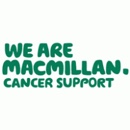
what to look out for
Oesophageal cancer is a type of cancer that can affect your oesophagus, which is also known as your gullet. It’s the tube that carries food from your throat to your stomach.
Signs and symptoms
Some possible signs of oesophageal cancer, are listed below, though it’s important to remember that these could also be the symptoms of other, more common, conditions.
- You have difficulty or pain when swallowing.
- Regular heartburn or indigestion that you didn’t get before.
- You’ve recently lost weight without trying.
- There’s a new and persistent pain in your throat or behind your breastbone.
- Persistent vomiting for more than 2 weeks.
- A cough that doesn’t go away after 3 weeks.
- Persistent hoarseness.
Having one or more of these symptoms doesn’t mean you have cancer but if you notice anything that’s unusual for you or that won't go away, you should visit your doctor.
A specialists view
I see cancer patients every day who have had unusual or persistent symptoms for some time but have delayed seeking advice or visiting their GP practice.
While there are more treatment options available for oesophageal cancer today than ever before, early diagnosis increases your chance of survival.
If you’re referred to a specialist like myself, we’ll be with you all the way, helping explain every test and appointment that you have so don’t get scared, get checked.

Sami M Shimi, Consultant Upper GI Surgeon
Getting Checked – what’s involved?
Some people put off going to their doctor because they think they'll be wasting their time. But if you’ve noticed any potential symptoms and you’re at all worried, your doctor will want to know.
Here’s what you can expect at your appointment:
- You’ll be asked about your symptoms - including what they are, when you get them and whether anything you do makes them better or worse. You may want to write this down in advance so you don’t forget.
- Your doctor might do a physical examination, for example feeling your tummy and your neck.
- They may want to get some blood tests done.
After your examination, your doctor may need to refer you to a hospital for tests or to see a specialist.
Facts
- More than 900 cases of oesophageal cancer are diagnosed every year in Scotland.
- Incidence in oesophageal cancer has decreased by 3.5% in the last 10 years.
- Oesophageal cancer is more common in people over the age of 55.
- The one year survival rate for oesophageal cancer is 40.4%.
- Earlier diagnosis improves the chance of survival.



